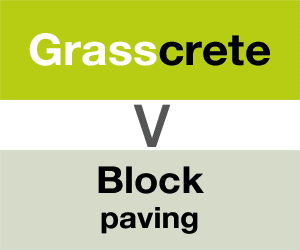The Dynapac Compaction Analyser has been introduced to India with the delivery of a total of 10 soil and asphalt vibratory compaction rollers to five contractors in Mumbai for use in trials on road and highway projects in Pune.
The rollers are equipped with sensors that relay data to the cab where the operator can monitor progress on a screen - the information also being transmitted via a wireless broadband connection to the contractor and the client, where it is analysed for performance.
The DCA (Dynapac Compaction Analyzer) system is manufactured in Sweden and can be fitted to any machine in the soil and asphalt compaction ranges.
Pune is the largest city in India’s Western Ghats and many information technology and automotive companies are setting up factories in the district. Consequently there is an active programme to upgrade the infrastructure, including highways, urban roads and flyovers.
Dynapac, which in India is a division of Atlas Copco (India) Pvt Ltd, based in Pune, is carrying out the trials in cooperation with the highways division of PCMC (Pimpri Chinchwad Municipal Corporation).
“Dynapac is the first company in India to introduce intelligent compaction, and we have just started this year,” said Dynapac’s business manager for road construction equipment K Vasudevan. “We believe it is a logical progression. Indian companies making asphalt and concrete have sensors on their batching plants and trucks to relay the information to a central point for storage and analysis, so the supply of data on the actual compaction depths and the number of passes provides the extra crucial link to ensure a quality surface. This also works for soil compaction, because although there is not the need for monitoring incoming materials, the depth and quality of the compaction are equally important to provide stability to the road base.”
One of the first contractors to use DCA is PBA Infrastructure, based in Mumbai, which has just taken delivery of a new 11t CA250 single-drum soil compactor and a 9.4 t CC384 tandem roller. Both machines were assembled at Dynapac’s factory at Nasik in India and equipped with the Swedish-made DCA.
.png)
“We believe this could change the way in which highway construction is carried out in India,” said Deepak Wadhawan, executive director of PBA Infrastructure.
For the first time, clients will be able to study road compaction data on their own computer monitors in their own offices, and see how well the job is being done. The client will be able to read data on road base compaction, monitor the volume of asphalt that leaves the batching plant, and see that the specified number of passes is being used to achieve the necessary compaction.
Along with PBA Infrastructure there are four other contractors in Mumbai who have taken delivery of Dynapac compactors with the DCA system for working on projects in Pune. Thakur Infra Projects has a CC384 and a CA250; Ajwani Infra Construction has one CA250 and three CC384 machines; J Kumar Infra Project has a CA250; and Jitender Singh Group also has a CA250. All the compactors are Indian-built.
Thakur is currently using its CC384 on the construction of the Bhosari flyover near Pune city centre. The 1.6-km flyover has a 9-m wide carriageway. On the site, plant and equipment manager Vishwanath Gupta said that the asphalt is being applied in three layers. The bottom layer is 300 mm thick and requires between eight and 10 passes, the middle layer is between 50 and 100 mm thick and requires the same compaction, while the final top layer is between 25 and 50 mm and requires six passes. The sensor is placed at the front of the machine, just above the drum, while the screen is to the right of the driver in the cab and the GPS transmitter is mounted on the machine roof.
“The system works in our favour,” said Mr Gupta. “It shows exactly how many passes we are making and at which temperature. It also indicates how much time we are spending. This gives us greater accuracy, tighter control, and can save us time, fuel and money.”
Operator of the CC384 at the Bhosari flyover is Phatan Jalil, who works a 10-hour shift every day, and who said the system is very easy to use. “I have no problem monitoring the screen as I’m working, and it helps me because I can see exactly which parts of the surface I have worked on, and how many passes I have done,” he said. “There is no chance of making a mistake by missing a section of the surface or making an incorrect number of passes.”
Got a story? Email news@theconstructionindex.co.uk


